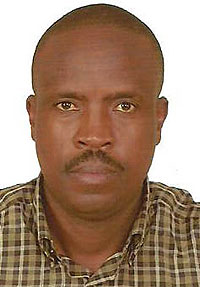“From my vintage point as commander of the United Nations Assistance Mission for Rwanda (UNAMIR), I was able to watch the strange dichotomy of local media, on one side, fuelling the killing while international media, on the other side, virtually ignored or misunderstood what was happening… the local media, particularly RTLM, were literally part of the genocide”, Gen. Romeo Dallaire.


"From my vintage point as commander of the United Nations Assistance Mission for Rwanda (UNAMIR), I was able to watch the strange dichotomy of local media, on one side, fuelling the killing while international media, on the other side, virtually ignored or misunderstood what was happening… the local media, particularly RTLM, were literally part of the genocide”, Gen. Romeo Dallaire.
This was Dallaire’s view of the role of media in the 1994 Genocide against the Tutsi. Twenty years after, what reference do we have for the media outlets, both local and international? I recently attended an international conference whose theme was "Search for Universal norm on Freedom of Speech and Respect for the Sacred”.
Throughout the conference, all references to Rwanda showed how both local and international media outlets failed in their responsibilities. On the one hand, some of the local media outlets particularly RTLM and Kangura, were used to spread hate speech and incite hatred amongst Rwandans, while on the other hand, the international media never lived up to its mandate to bring to world attention what was happening in the country.
The focus of this article is on the role of local media practitioners. It’s evidently clear that under the guise of freedom of expression and speech, the media may wreck havoc on an unsuspecting members of society; hiding behind the freedom of expression the media can spread harmful information, hate speech and incite the population.
In the age of YouTube, Facebook, Twitter, and other forms of social media, what once might have been shared only by a few, can now be heard and read by millions around the world.
Depending on the content of the message, it may either inspire to construct or incite to destruct instantaneously. In recent times, irresponsible acts such as desecrating religious figures, Holy Books and/or worship places under the guise of exercising right to freedom of expression and religion is a common occurrence.
At the same time, it occurred that there should be no instances where the freedom of expression should be stifled under some of the excuses as given above. In this respect, how do we reconcile these two positions of freedom of expression at the same time respecting what is sacred to some given societies?
The declaration of universal human rights has a long list of articles which should guide members of society and media practitioners in particular on rights, freedoms and responsibilities. At this point it can’t be over emphasised, that "responsibility” is the key concept that draws the dichotomy between the freedoms of speech on the one hand and respect to what is sacred on the other.
This calls for our intent, motive and purpose when we are communicating. In addition, the mood, tone, timing and context also matters. Sometimes, people abuse others in complete disregard of what is sacred to them in the name of freedom of speech and expression.
Understanding sensitivities of different interest groups or individuals is a fundamental principle if we are to enjoy freedom of speech at the same time respect what is sacred to some people and societies.
As earlier mentioned, easy access to information facilitated by the internet and other channels have put information in the hands of journalist and this calls for objective dissemination of such information to the audience. Are journalists and media practitioners ready for the new responsibility that comes with freedom of expression in this information age?
What is the face of freedom of speech in the 21st century? Given such challenges and unfavourable situation and its ever-increasing negative implications across the globe, can there be simple and practical measures to take towards discouraging, minimising and eventually eliminating the abuse of freedom of expression without infringing on or inhibiting individual rights to that freedom? Yes!
All we need is to go back to the basics; understand that we have an obligation to do what is morally right.
Before we disseminate information under the guise of freedoms, we need to understand the sensitivities of our message could have on some individuals!
In the final analysis, the saying goes that ‘one good journalist on the ground is worth a battalion of troops’, the media can be both a weapon and conscience to humanity.
Journalists can be powerful, individually and collectively.
But they can equally be manipulated very easily if the depth of the subject is not there. Journalist should be responsible, be more analytical, and stay dynamic in search for the truth because they are noble and instruments of world justice.
The writer is an educationist, author and publisher


